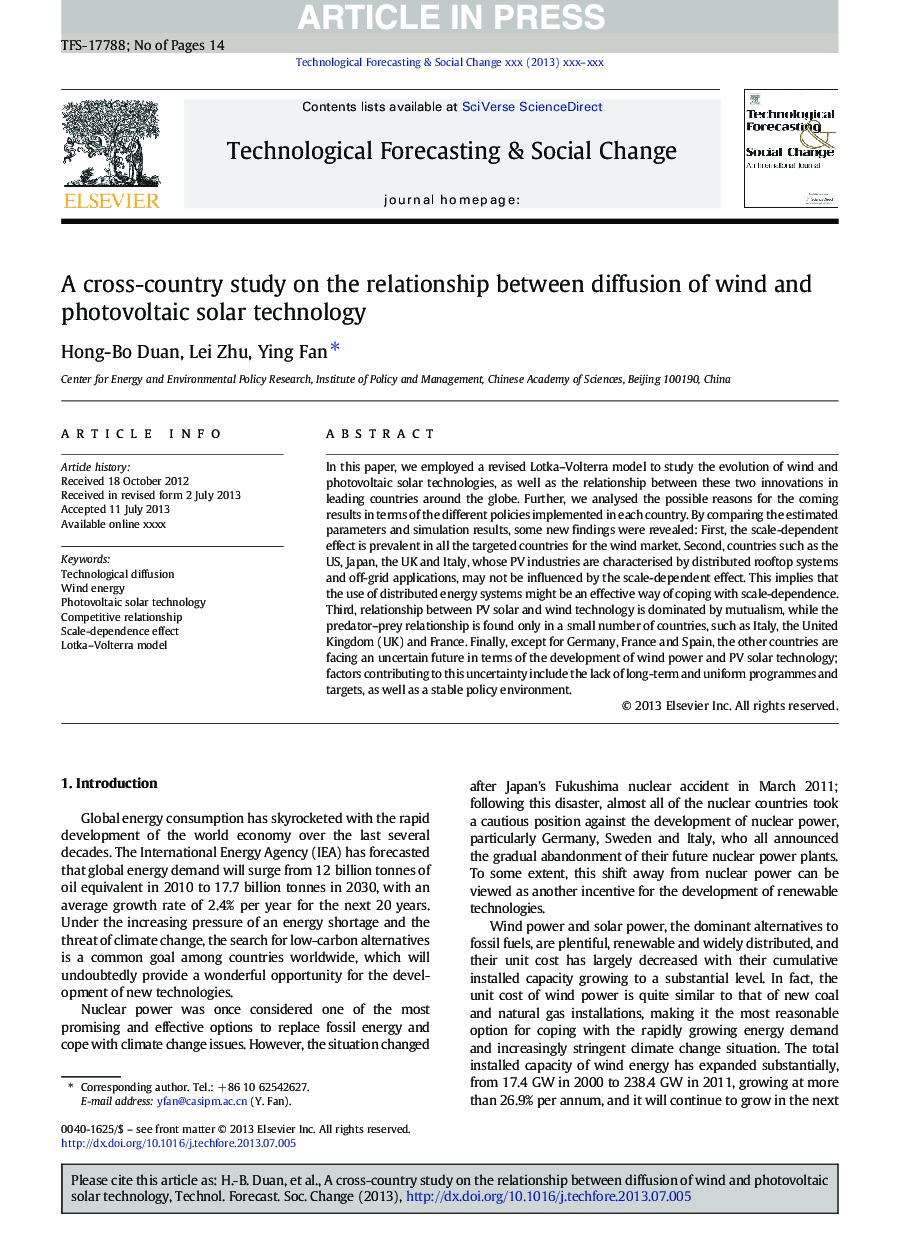| Article ID | Journal | Published Year | Pages | File Type |
|---|---|---|---|---|
| 7257407 | Technological Forecasting and Social Change | 2014 | 14 Pages |
Abstract
In this paper, we employed a revised Lotka-Volterra model to study the evolution of wind and photovoltaic solar technologies, as well as the relationship between these two innovations in leading countries around the globe. Further, we analysed the possible reasons for the coming results in terms of the different policies implemented in each country. By comparing the estimated parameters and simulation results, some new findings were revealed: First, the scale-dependent effect is prevalent in all the targeted countries for the wind market. Second, countries such as the US, Japan, the UK and Italy, whose PV industries are characterised by distributed rooftop systems and off-grid applications, may not be influenced by the scale-dependent effect. This implies that the use of distributed energy systems might be an effective way of coping with scale-dependence. Third, relationship between PV solar and wind technology is dominated by mutualism, while the predator-prey relationship is found only in a small number of countries, such as Italy, the United Kingdom (UK) and France. Finally, except for Germany, France and Spain, the other countries are facing an uncertain future in terms of the development of wind power and PV solar technology; factors contributing to this uncertainty include the lack of long-term and uniform programmes and targets, as well as a stable policy environment.
Related Topics
Social Sciences and Humanities
Business, Management and Accounting
Business and International Management
Authors
Hong-Bo Duan, Lei Zhu, Ying Fan,
